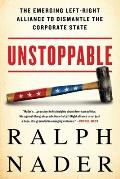Schooling for Myths and Powerlessness

All over America, school children are completing another academic year before their summer vacation. This invites the questions, what did they learn and what did they do with what they learned?
I’m not talking about their test scores, nor the latest fads in rebranding education, like the STEM (Science, Technology, Engineering and Mathematics) curriculum that de-emphasizes the first two thirds of the old mantra – reading, writing and arithmetic. Rather, I am questioning what they learned about their real-world surroundings, about preparing themselves for life as citizens, workers, consumers, taxpayers, voters and members of various communities.
Not very much, sad to say. The same is true of my generation. Instead of receiving an enriching and well-rounded education, we were fed myths. All societies perpetuate lavish myths that enable the few to rule over the many, repress critical thinking and camouflage the grim realities. Our country was, and remains, no exception.
In school we learned that our country was number one, the greatest in the world. We sang “Onward Christian Soldiers” in music class. Being the “greatest” was neither defined nor questioned. We simply had a vague sense that “great” meant militarily and economically “big.”
In practice, however, “great” was associated with kneejerk patriotism and served as a barrier to thinking critically about what we were told to take for granted. For were we to parse the deeper meaning of the word “great,” we might have had to make specific comparisons of the United States in concrete ways with other countries such as Canada and those in Europe. And we might have discovered that we weren’t first in many areas of human and environmental well-being.
Early in elementary school we were told that Christopher Columbus “discovered” America and what followed was the arrival of the pioneers of “civilization.” This myth served to justify the white man’s domination over “inferior races,” whether native or brought in as slaves from Africa. In truth, as my father taught me, Columbus invaded America in search of gold and, with his soldiers, slaughtered Caribbean tribes that long preceded Columbus’s arrival in their lands.
Along the way in school we were told that, unlike other “evil” countries, American soldiers did not intentionally kill civilians, as did our cruel enemies. Somehow General Sherman’s march to the sea during the Civil War escaped our attention; as did later mass slaughter of human beings in the Philippines and the deliberate targeting and incineration of entire residential, civilian areas in World War I and World War II – to, in the language of the official strategies, “terrorize the populations.”
The myth of an America without imperial intentions camouflaged the purposes of several wars and many imperial assaults and overthrows. Who were we to question? Other countries were Empires; America was guided by “manifest destiny.”
Then there was the fictional character, Paul Bunyan, the giant lumberjack from American folklore who was hijacked and commercialized by the timber industry to propagandize the minds of millions of children. With his huge blue ox, Babe, Bunyan conquered and cut down forests. One of the Paul Bunyan Schooling for Myths and Powerlessness | Dissident Voice:
